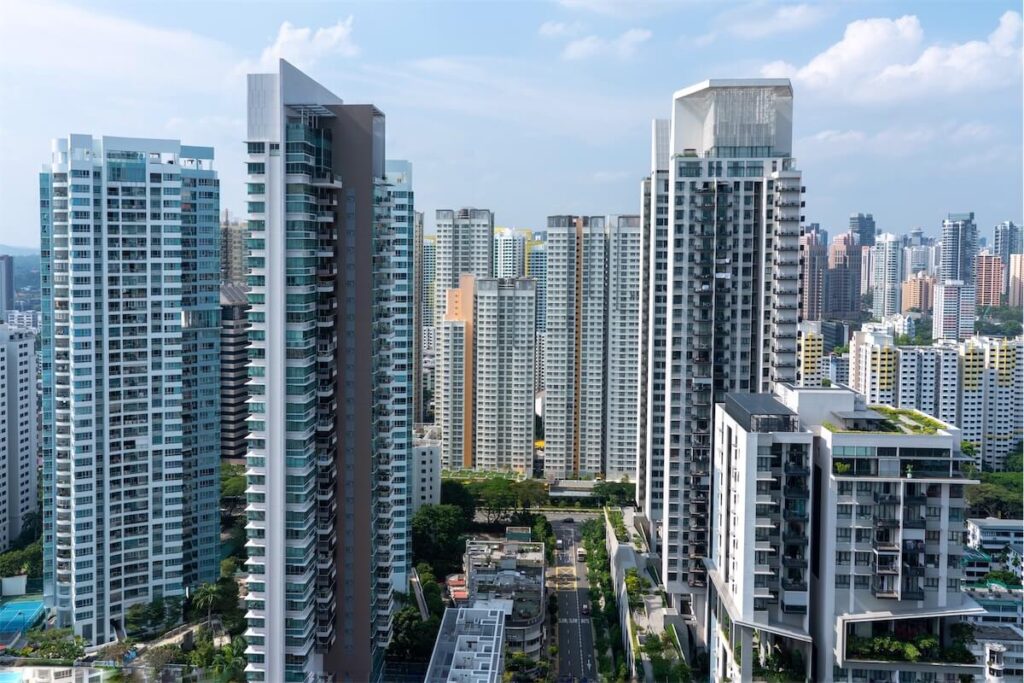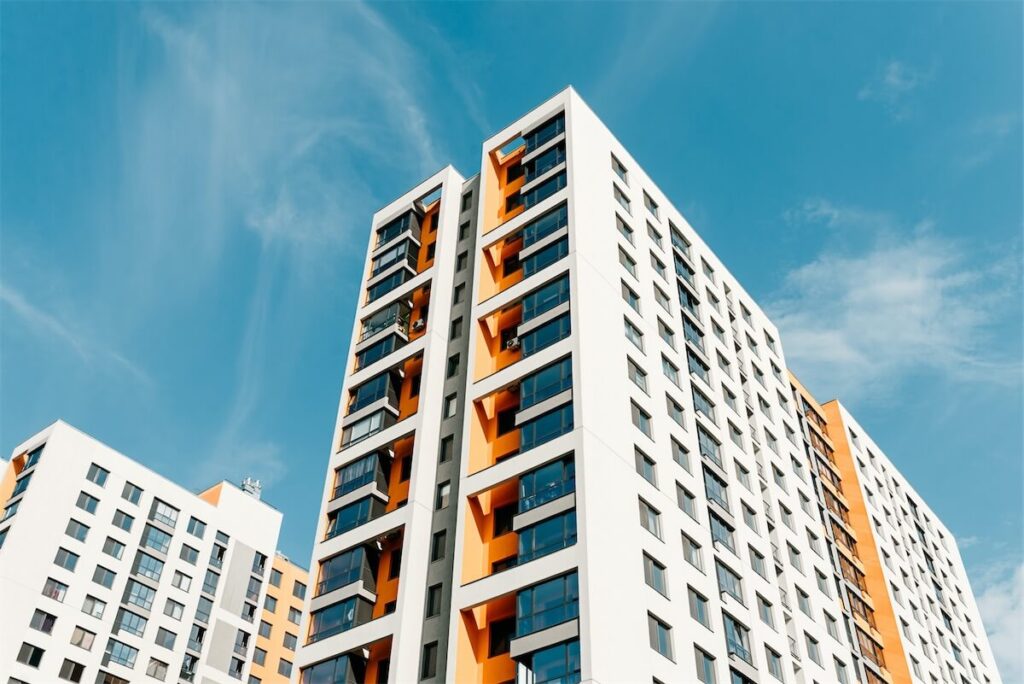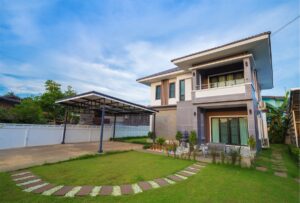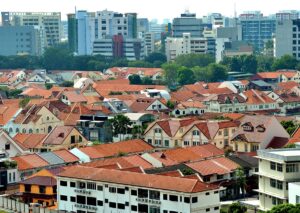Resale home prices have been selling at record high prices, and you might love or hate the valuation process. That, of course, depends entirely on whether you’re the buyer or the seller. However, with people being agreeable to spending more on resale homes, cash over valuation (COV) is a definite concern.
Of course, things are a little trickier than that. Singapore’s housing situation has always been costly, but with an ongoing pandemic and extended delays in the building schedules of BTOs, resale homes are increasing in both demand and value. So while the situation favours one party, it doesn’t matter so much the other.
Is your BTO delayed? Here are some alternative housing options in Singapore.
If you’re a seller, cash over valuation might help you maximise your profits. But if you’re a buyer, there’s a chance that the term COV might mean an added financial strain that you may not entirely be prepared for.
So, if you are a buyer, we will tell you how to conduct your own valuation and how to minimise COV. The information will surely come in handy and play a significant role in your financial planning efforts.

What is property valuation and cash over valuation? Will I know when to pay cash over valuation for HDB?
Simply put, a property valuation is an estimate of how much the property you own or are intending to buy is worth in the market. But note that this isn’t the actual sale price of that property.
The ultimate sale price will be based on negotiations that may cause the property’s final price to fluctuate.
In the current climate of HDB resale homes selling like hotcakes, and with many willing to pay more for them, the ultimate sale price might be significantly higher than the valuation of the property.
In this case, an HDB resale valuation can help be somewhat of a guiding benchmark that’ll allow you to haggle over the property’s price with the other party.
COV is a situation that happens when the HDB valuation is lower than the property’s purchase price. In such a situation, this price difference is what’s referred to as a COV. And the reason why it’s specifically called cash over valuation is that you’ll need to pay this difference in cash if you’re the buyer.
So imagine the valuation of a home you’re buying is S$600,000. But the price that you purchased the home for is S$700,000. This means that you’ll need to pay the S$100,000 difference in cash.
And the math isn’t as direct either. Between loan repayments, CPF deductions and repayments (with interest, no less), the financial exchanges that go into the buying and selling an HDB apartment can be complicated at best.
How much you’ll have to pay in COV is not something that you nor the homeowner will know before you’ve agreed on a price and signed the Option to Purchase (OTP). Only after signing the OPT can the valuation report be obtained from HDB.
This wasn’t always the case, though. Until March 2014, valuations will be done first, which sellers would negotiate for higher purchase prices. Then, when COV amounts got too high, HDB stopped this process and mandated that the sale price would have to be agreed upon first.
But if I’ll only know the valuation after the sale price has been agreed, how can I prepare for cash over valuation for HDB?
For starters, you can try and make some estimates by taking the valuation process upon yourself. An HDB valuation is usually conducted by the HDB office, by qualified HDB valuers. .
To make a reasonable estimate, you’ll need to have a good grasp of the market value of similar properties that have been transacted within the vicinity. This will help you make negotiations in your favour, with potential property buyers or sellers that you’re communicating with.
Look at recently published resale transactions to better understand how much you might need to pay in COV for HDB. This is an estimative method that can help you get a grasp on an HDB resale valuation.
There are also other indicative valuation methods that you can take into account. This will mirror the steps taken by independent valuers to give an HDB resale valuation. However, these indicators also factor in many of the subtle differences that might alter the valuation of a home.
For HDB valuations, IRAS uses numerous factors, including the rentals of comparable properties, size adjustments, the condition of the unit, and which floor the unit is located.

I’m a buyer. How can I avoid high cash over valuation for HDB?
As long as the market is seeing a high demand for homes, it’ll be difficult for you to avoid cash over valuation.
The best that you can do is to have a steady grip on what the property market is like when you’re looking to buy, especially in the area or block that you’re looking to buy a new home in.
You can also consider taking an alternative approach by waiting for and applying for the next batch of BTOs to launch. While they’re cheaper and take COV out of the picture, they come with a very long wait, especially with current construction delays.
With that said, renting is also an option if you need to find urgent accommodation. Renting a home can buy you some time as you work through the financial aspects of buying a new home, and help make sure you’re prepared, especially if your HDB valuation is lower than the purchase price.
I’m a seller. How can I maximise my profit through cash over valuation for HDB?
If you want to maximise your profits, you’ll want to get an estimated valuation of your property. This can help facilitate your negotiations and know how much wiggle room you have based on the exact circumstances of your property. It’ll also help ensure that you’re not quoting a price that’s lower than what you can get.
In times such as these, where the demand for resale values are high, you can also ponder the other things that might impact your property price. And then you can add them to the rough valuation you’ve come up with.
For example, if the home you’re selling has very strong sentimental value to you, you might feel like you want to increase your asking price for it. Factors such as these tap on the push and pull for sellers while capitalising on the market’s needs for resale homes.
Other factors might make it easier for you to make your case, like if you’ve invested a lot into the improvement of your home. Recent renovations and complicated upgrades all add to the buyability of your home as opposed to the other homes in your block, even if they’re of the same size.

Let’s quickly run through some of these factors on how to conduct your own valuation.
Before we proceed, keep in mind that these measures and the factors described are not exhaustive, as valuers might consider many other factors when they’re producing a report.
Let’s use the method of direct comparison. This process typically involves looking up similar properties’ most recent rental transactions and identifying some value-sensitive factors. Following that, you might need to adjust for the difference in value-sensitive factors, then reconcile and arrive at the property’s final value.
Once you’ve narrowed down a few of the most comparable properties, you should think of the other parts that might make the property value more or less than those comparable properties.
Based on market norms, the other parts that might change the property value might be the size, floor level, view (unblocked or blocked), and the condition of the property.
| Adjustment | Difference in Price |
| Change in market conditions from 2020 to 2021 | Add S$60 per square foot |
| Smaller sizes | Add S$30 per square foot |
| Unblocked view | Add S$50 per square foot |
| Higher floors | Add S$80 per square foot |
| Condition of the property | Add S$90 per square foot when jumping from average to good |
Then, you’ll want to reconcile and arrive at the final value of the properties.
A common way to do this is to calculate a simple average. Add the value you’ve calculated for the property, with a property that you were comparing with.
Then, divide that by 2 to get a more realistic average that will help you reconcile and arrive at a final number for the value.
What to do with this amount you’ve come up with? First, you can compare with the asking sale price of the property in consideration. The price difference is how much you’ll pay (or earn, if you’re a seller) in cash over valuation for HDB.
Is it normal to pay cash over valuation for HDB?
While this all depends on the ebb and flow of the property market, around 1 in 3 buyers of HDB resale homes paid above market valuation this year. This is an increase from 2020, where 1 in 5 buyers paid above market valuation.
According to the Ministry of National Development (MND), this reflects a current broad-based demand for housing in Singapore. It’s also revealed that 6 in 10 buyers paid a COV of not more than S$20,000, while the remaining 4 paid more than S$20,000.
Whether the S$20,000 is a high or low amount depends on the price of the property being sold. However, the market currently lacks sufficient data to succinctly narrow in on a suggested acceptable range to pay for COV.
With that said, the basis of COV is also that transactions are conducted on a “willing-buyer, willing-seller” basis.
If you’re buying a home and find the asking price unreasonable and as opposed to predicted market valuations, you should consider other options.
You can also consider this data on the amounts the people paid in COV across various areas of Singapore when buying resale homes.
Depending on the housing estates you might already have in mind, these figures might help you make some mental preparations on how much you can expect a COV to be.
| Area and Estates with Resale Transactions | % of COV above S$20,000 | % of COV below S$20,000 |
| North (Sembawang, Woodlands, Yishun) | 38% | 62% |
| North-east (Ang Mo Kio, Hougang, Punggol, Sengkang, Serangoon) | 34% | 66% |
| West (Bukit Batok, Bukit Panjang, Choa Chu Kang, Clementi, Jurong East, Jurong West) | 43% | 57% |
| Central (Bishan, Bukit Merah, Bukit Timah, Central, Geylang, Kallang/Whampoa, Marine Parade, Queenstown, Toa Payoh) | 43% | 57% |
Why is it so important to estimate the cash over valuation?
For the most part, estimating the COV will help you prepare for a large difference in your HDB Purchase. You’ll need to know the banks will lend based on the lower of: Purchase price or Market value.
When the demand for property is significantly higher than the supply, you can automatically expect a higher COV. That’s because buyers are willing to meet the demands of sellers who ask for more than the valuation of the home. This can change a lot for you when you’re planning to sell or buy a home.
Most importantly, estimating how and when to pay cash over valuation can help you acquire the funds you need when buying. For one, paying the difference in cash might mean that you need to be prepared for a more considerable cash outlay.
Moreover, a lower property value might affect the amount you can get for your bank loan or HDB loan, since the loan-to-value (LTV) ratio is determined on property value or purchase price, whichever is lower.
Another reason why you’ll want to know what you’re getting into is that backing out of the deal might see you forfeiting your option fee, which you would have paid before the valuation report was obtained. This option fee is typically S$1,000 for HDB homes.
And if you’re a seller who paid for your property using CPF, and if that CPF amount is larger than the cash proceeds received from the sale of the flat, it means you’ll need to spend more cash to return your CPF money.
If you’re selling your home for an upgrade, keep in mind that you’ll need to return the amount you paid for it in CPF, with interest accrued. Read more about the financial mistakes to avoid when upgrading from an HDB to a condo here.
These calculations can be a little tricky to manage, and you don’t have to do it all alone. A mortgage broker in Singapore can help with crunching some of those numbers, so you don’t miss any of the financial considerations you need to be making.
On a fundamental level, estimating the COV for HDB will give you a starting point for negotiations and help you make sure you aren’t overpaying for a property or underselling one.
Given a strong market demand for resale homes right now, sellers can consider testing their luck and increasing your asking sale price because there’s a higher likelihood of buyers taking the offer.
And if you’re a buyer, staying on top of the property valuation and COV for HDB can protect your interests and keep you from purchasing properties that are priced unreasonably high. It’s important to have a market reference point so that you don’t end up overpaying as a buyer.
If it’s priced much higher than surrounding properties in the same area, there should be plenty of aspects about the house to convince you into considering that price.
If not, consider giving it a miss and looking for another property without feeling like you’ve been cornered into the deal.
With market valuations consistently increasing based on past transactions, you can expect COVs to continue rising for a while now.

COV racking your brain? We can help simplify it.
Amidst home loans and a million other things to worry about when buying a new home, COV can be an anxiety-inducing factor to deal with — especially if you’ve gone through an extensive financial process to narrow in on your home loan options and down payment options.
Being asked to pay for COV is no small matter, especially because your gauge of what the amount could be will always involve some level of guesswork.
As a mortgage broker in Singapore, you might find our outlook on your situation to be valuable.
Mortgage brokers can help assess your financial situation and suggest your best options. But, more importantly, you’ll have the peace of mind of having your entire home buying financial journey planned out for you.
Read: Should you take out a home loan through a mortgage broker in Singapore?
We also have access to numerous home loans on the market and can help inform you on how your COV might affect the home loan you might have planned for. We’ll help you stay on top of the best deals for you with a potentially evolving situation.

In times that may seem to be more uncertain than they usually are, there’s no reason for anyone to have to go through one of the biggest life choices without the necessary support.
We trust you’ll find the answers you’re looking for. Contact us today for a no-strings-attached consultation session!







